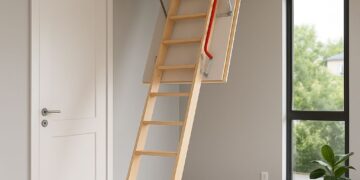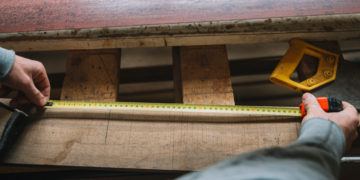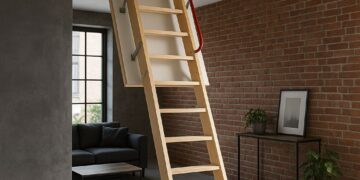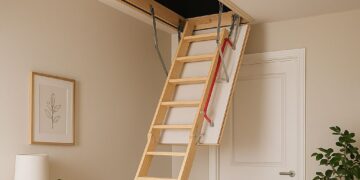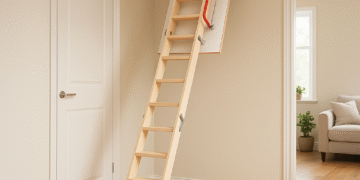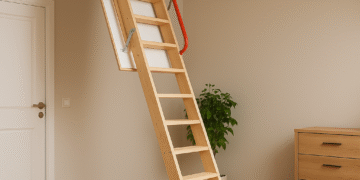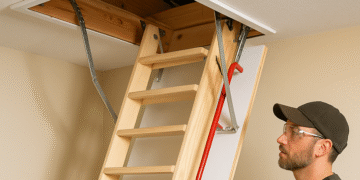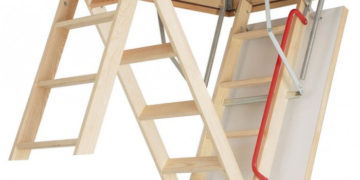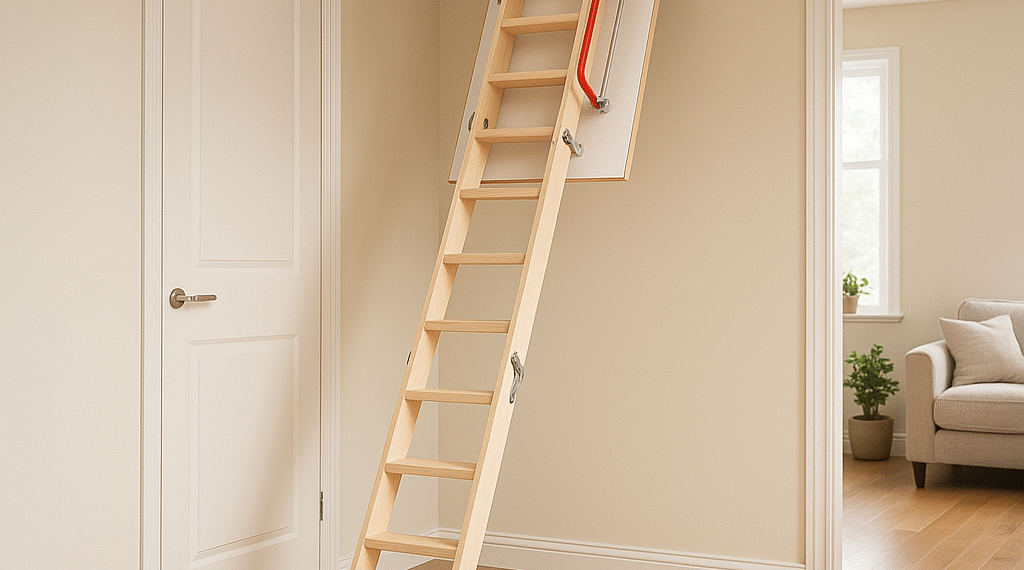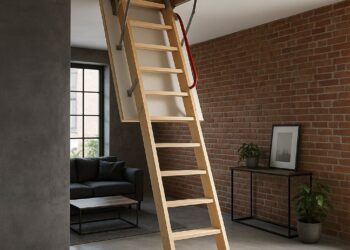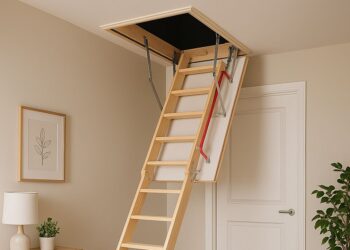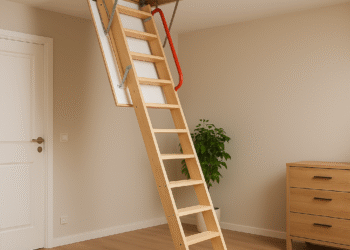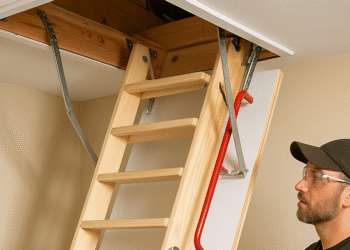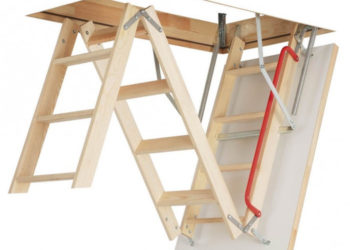If you’ve recently added a loft or are looking to make your attic space more accessible, a loft ladder is an essential addition. Loft ladders provide easy and safe access to upper levels, turning your loft into a functional living area. With numerous types of loft ladders available—from wooden to folding ladders—choosing the right one involves considering several important safety factors. This guide will help you understand how to select loft ladders that not only suit your space but also prioritize your safety.
What Are the Key Safety Features of Loft Ladders?
Safety should always be your first priority when selecting a loft ladder. The essential safety features to look for include non-slip treads, sturdy handrails, and reliable locking mechanisms that keep the ladder securely in place when in use. Non-slip treads provide firm footing, reducing the risk of slipping when climbing up or down. This feature is especially important if you have children or elderly family members using the ladder.
Handrails offer additional support, enabling users to steady themselves. Ideally, handrails should be easy to grip and extend along the entire length of the ladder. Locking mechanisms prevent accidental folding or movement of the ladder, which could cause dangerous falls. When considering these safety features, also check the quality of the materials used, such as strong metal hinges or durable wood, as these affect the ladder’s overall stability and longevity.
How Do I Choose the Right Loft Ladder Load Capacity?
Understanding and selecting the correct load capacity for your loft ladder is crucial in preventing accidents and ensuring safe use. Load capacity refers to the maximum weight the ladder can safely support, typically measured in kilograms (kg). Common load capacities range from 150kg to 300kg, depending on the material and design of the ladder. The EN14975 European safety standard for loft ladders specifies a minimum load capacity of 150 kg.
Choosing a load capacity that exceeds the combined weight of the heaviest user plus any items they might carry is best practice. For example, if you intend to carry boxes or furniture up the ladder, opt for a higher load capacity to accommodate extra weight safely. Remember, exceeding the ladder’s load capacity can cause structural failure, leading to falls and injuries. Always check the manufacturer’s specifications and certifications to ensure compliance with safety standards.
What Types of Loft Ladders Are Best for Small Spaces?
If space is limited, selecting a loft ladder designed for small spaces is essential. Folding loft ladders and telescopic loft ladders are popular space-saving choices. Folding loft ladders can be neatly folded up and stored away, making them ideal for areas with low ceiling heights or restricted floor space. Telescopic loft ladders extend and retract, adapting their length as needed without requiring extra room for storage.
Wooden loft ladders offer a classic look and may fit better in traditionally styled homes, while aluminum models are lightweight and easier to handle. When choosing loft ladders for small spaces, consider the ladder dimensions, the clear opening size in your loft hatch, and the ceiling height to ensure the ladder will fit and operate without obstruction.
How Can I Properly Install and Maintain My Loft Ladder?
Proper installation is vital to ensure your loft ladder functions safely and efficiently. It’s strongly recommended to follow the manufacturer’s installation guidelines or hire a professional installer. The ladder should be firmly fixed to the loft opening frame, with level footing on the floor and secure attachment points.
Regular maintenance also plays a crucial role in loft ladder safety. Here are best practices to keep your ladder in optimal condition:
- Inspect locking mechanisms and hinges for signs of wear or damage.
- Check the handrails and treads for stability and cleanliness.
- Lubricate moving parts, such as hinges and locks, to ensure smooth operation.
- Tighten any loose screws or bolts regularly.
Routine inspections reduce the risk of accidents caused by structural weaknesses or malfunctioning components.
What Are the Common Mistakes to Avoid When Using a Loft Ladder?
Using a loft ladder safely goes beyond installation. Common mistakes include overloading the ladder, skipping safety checks before use, and climbing without holding the handrails. Avoid wearing slippery footwear when using the ladder, as this increases fall risk, even if the ladder has non-slip treads.
Additionally, ensure the ladder is fully extended and locked in place before climbing. Using the ladder in poor lighting or rushing can also lead to accidents. Never stand on the top step, as this compromises balance. When transporting objects up or down the ladder, always keep one hand free to hold the railing and distribute the weight evenly.
By understanding these key points about loft ladder safety—such as essential features, load capacity, space considerations, proper installation, and common usage mistakes—you can confidently select the best loft ladder for your home and ensure safe access to your loft space. With the right ladder and good safety habits, your loft transformation will be both practical and secure.


